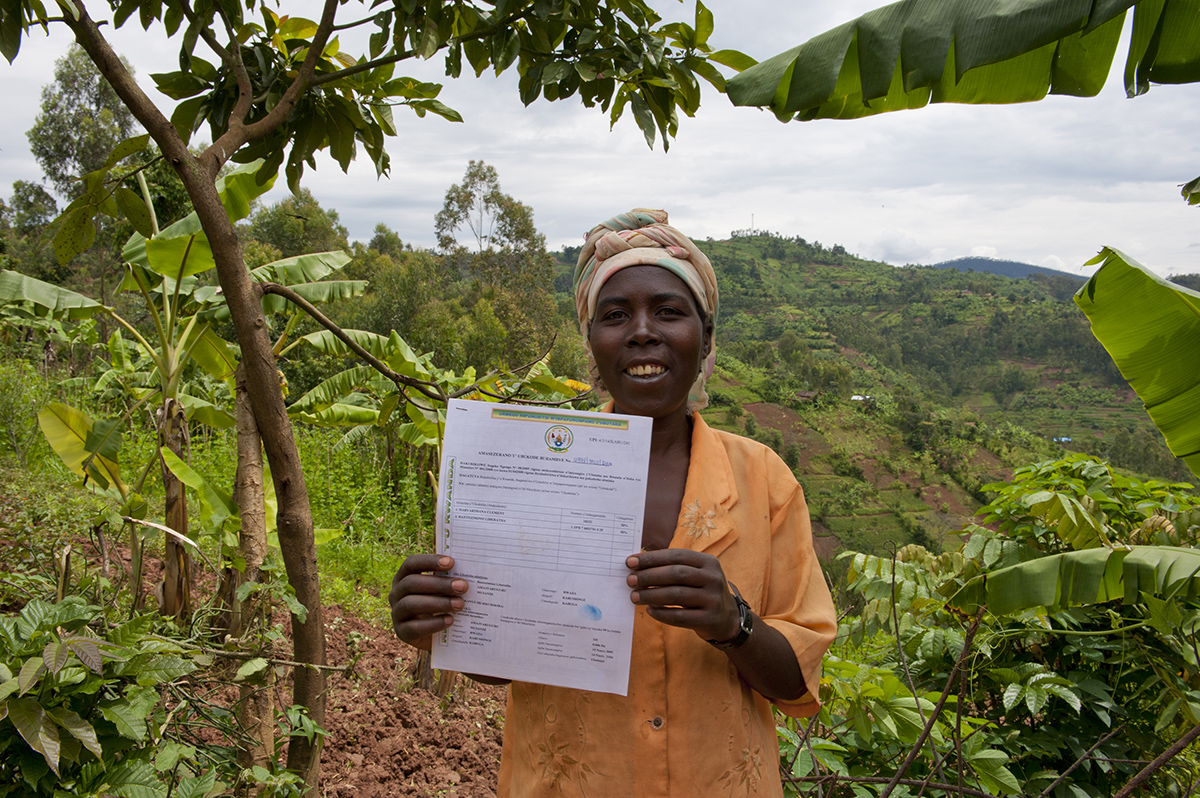By Colleen O'Holleran
Over the past few decades there has been growing awareness of the need to strengthen land rights for women and men across the African continent. As a result, governments have come under growing pressure to improve laws, policies and institutions to guarantee Africa’s smallholder farmers secure land tenure.
Adding to the urgency of this call to action is the global land rush for farmland, which has raised concerns about large land-based investments displacing smallholders and pastoralists.
The Sustainable Development Goals recognize the critical role that secure land rights play in alleviating poverty, fortifying food security, and enhancing women’s empowerment and gender equality. But women still face legal and customary barriers that impede their land and inheritance rights in more than half the countries in the world, and women are especially vulnerable to losing their land since their access often depends on their relationship with a male relative. If this male relative dies, a woman’s continued access to her land is anything but certain.
When a woman has secure rights to the land that she tills, multiple benefits often follow, such as increased status within the household, better health outcomes for women and their families, improved household nutrition, and increased incomes. That’s why it’s vital to ensure that women’s land rights are enshrined not only in law, but are actually upheld in practice.
2 women fighting for equal land rights
Fortunately, champions of women’s land rights are working to promote equality in land at the grassroots level. At Landesa, I’ve been fortunate to work with many women and men who support women’s land rights on the ground. Each year, we select a cadre of women’s land professionals to participate in the Women’s Land Rights Visiting Professionals Program, an initiative of the Landesa Center for Women’s Land Rights.
The experience of two participants — Christine Kajumba and Scholastica Haule — shows how the cadre of professionals is taking shape in the Africa region, and what influence they’re already having.
Christine Kajumba is a research manager at Associates Research Uganda, an NGO that undertakes both partnered and commissioned research studies in the areas of land, natural resources, agriculture, and livelihoods. Their partners include government agencies, international and national organizations. Christine has seen the importance of collecting gender-disaggregated data in rural communities to effectively measure the plight of women in relation to land rights. Evidenced-based programming is less costly and makes monitoring and evaluation simpler.
Christine understands the pressure her partners face to use unverified statistics that create a heightened sense of need and urgency. But she also realizes that if her partners are to show real progress toward closing gender gaps in land ownership, they have to know with precision and certainty how big the gaps were in the first place.
Scholastica Haule is the women and land rights advisor at ActionAid Tanzania, an NGO that works to further human rights and defeat poverty. Already a veteran advocate before taking part in the Women’s Land Rights Visiting Professionals Program, she now has a renewed awareness of the need for more in-depth gender analysis of development policies and projects.
For example, her organization conducted a major study recently on a project in Tanzania´s southern Bagamoyo District that will push thousands of smallholder farmers off community land without their consent to establish a sugarcane plantation. While acknowledging the hardships this will create for women, the study didn’t analyze the impacts on them specifically. Scholastica believes that such analysis is critical when assessing the potential benefits and potential risks of any large scale land based investment.
Civil society organizations like ActionAid Tanzania can help identify and address risks in land-based investments. Corporations can help by communicating with their government partners that poorly developed or nonfunctioning land tenure systems that exclude the consideration of impacts on women — or that don’t include women in project planning — discourage private investment of all kinds, whether it is a multinational planning a 1,000-acre sugar plantation or a smallholder farmer planting her one acre with beans and corn.
Civil society, governments, and the private sector can work collaboratively to address important issues facing women in relationship to land acquisition. And I’m delighted that my organization’s visiting professional program, and other programs like it, is playing a role in helping to make that happen.
Colleen O'Holleran is a program manager at Landesa.

